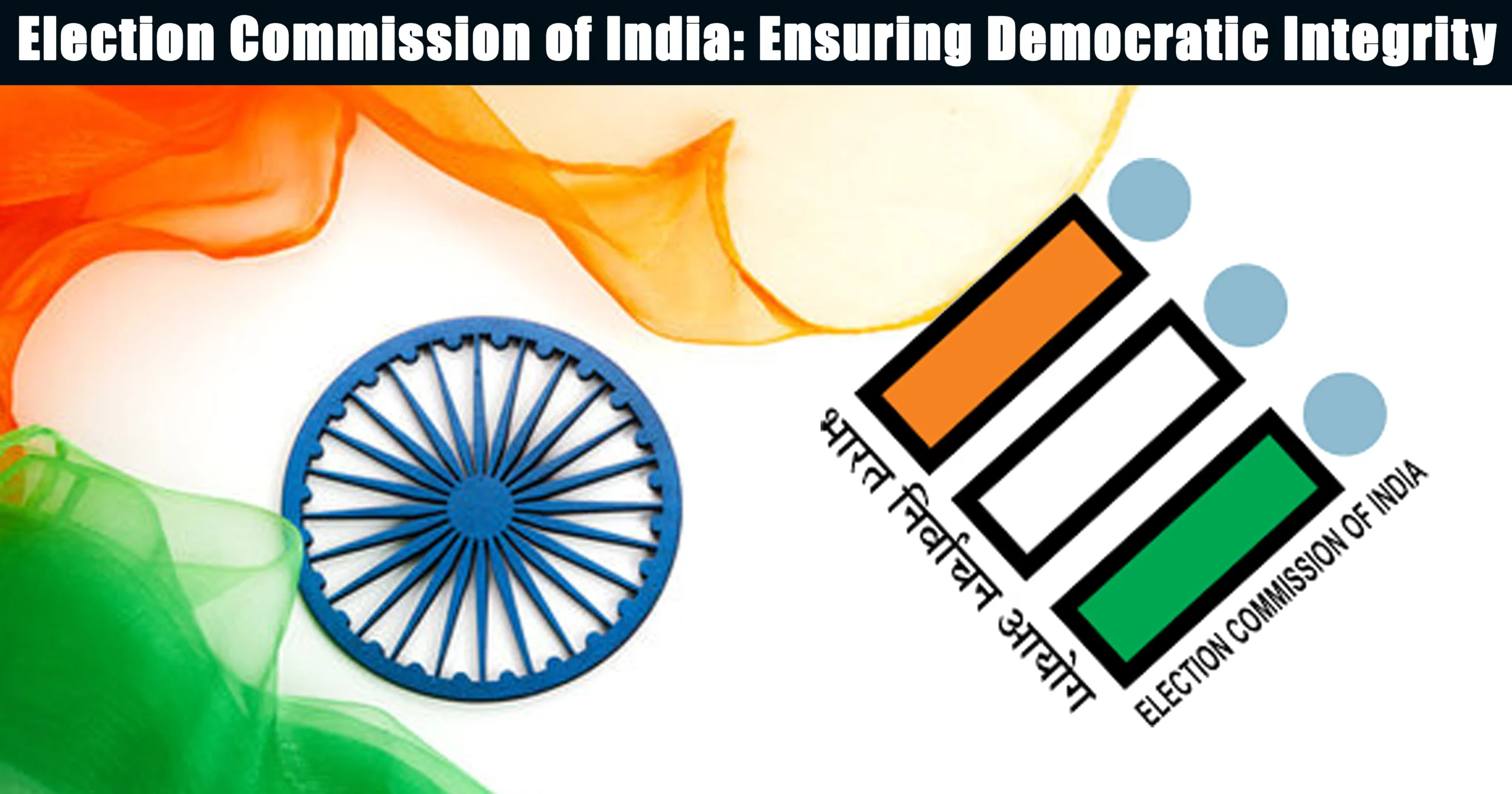
Context (IE):
Constitution Day, observed on November 26, emphasizes the pivotal role of the Election Commission of India (ECI) in upholding free and fair elections as mandated by Article 324 of the Constitution.
Contributions of the Election Commission of India
- Promoting Gender Equality:
The ECI has significantly improved the voter gender ratio, reaching 948 women per 1,000 men in 2024, effectively narrowing the gender gap in voter turnout. - Judicial Endorsement:
The Supreme Court has consistently upheld that free and fair elections form an essential part of the Constitution’s basic structure, reinforcing the ECI’s role in safeguarding democracy. - Legislative Milestones:
The ECI played a crucial role in the legislative process that led to the 33% reservation for women in the Lok Sabha and State Assemblies, set to take effect from 2029. - Enhancing Electoral Transparency:
In 2024, the ECI contributed to enhancing financial accountability by advocating for and achieving the abolition of electoral bonds, ensuring greater transparency in political funding.
Challenges in India’s Electoral System
- Criminalization of Politics:
As of 2024, nearly 46% of Lok Sabha members faced criminal charges, raising concerns about the erosion of democratic values. - Wealth Disparity:
The concentration of wealth among elected representatives remains high, with 93% of elected members being billionaires, leading to unequal representation in governance. - Defections and Horse Trading:
The existing Anti-Defection Law has been ineffective in preventing legislative defections, contributing to political instability and unethical practices. - Democratic Deficits:
Low literacy rates, corruption, and a lack of political culture continue to weaken India’s democratic fabric, limiting informed voter participation and accountability.
Electoral Reforms: Progress and Challenges
- Regulating Electoral Expenditure:
While limits on candidate expenditures have been implemented, spending by political parties remains largely unregulated, creating loopholes in financial oversight. - State Funding of Political Parties:
Although proposed, state funding to reduce reliance on private donations and promote transparency has yet to be implemented. - Gender Representation:
Despite notable progress in increasing women’s voter participation, legislative representation for women remains uneven and requires further efforts. - Independence of Election Commissioners:
Concerns persist over the appointment process and inadequate safeguards for the independence and security of Election Commissioners from political interference.
Way Forward
- Enhancing Financial Transparency:
Establish a National Election Fund to centralize political funding and eliminate private donations to political parties, ensuring accountability and reducing undue influence. - Strengthening Anti-Defection Laws:
Amend the Anti-Defection Law to impose stricter penalties and prevent unethical defections that undermine democratic stability. - Promoting Gender Representation:
Expedite the implementation of legislative reservations for women to ensure equitable representation in governance. - Institutional Safeguards for the ECI:
Strengthen the autonomy and security of Election Commissioners through transparent appointment processes and protections against political influence. - Raising Voter Awareness:
Conduct targeted educational campaigns to increase electoral participation among underrepresented and disadvantaged communities, fostering a more inclusive democracy.




